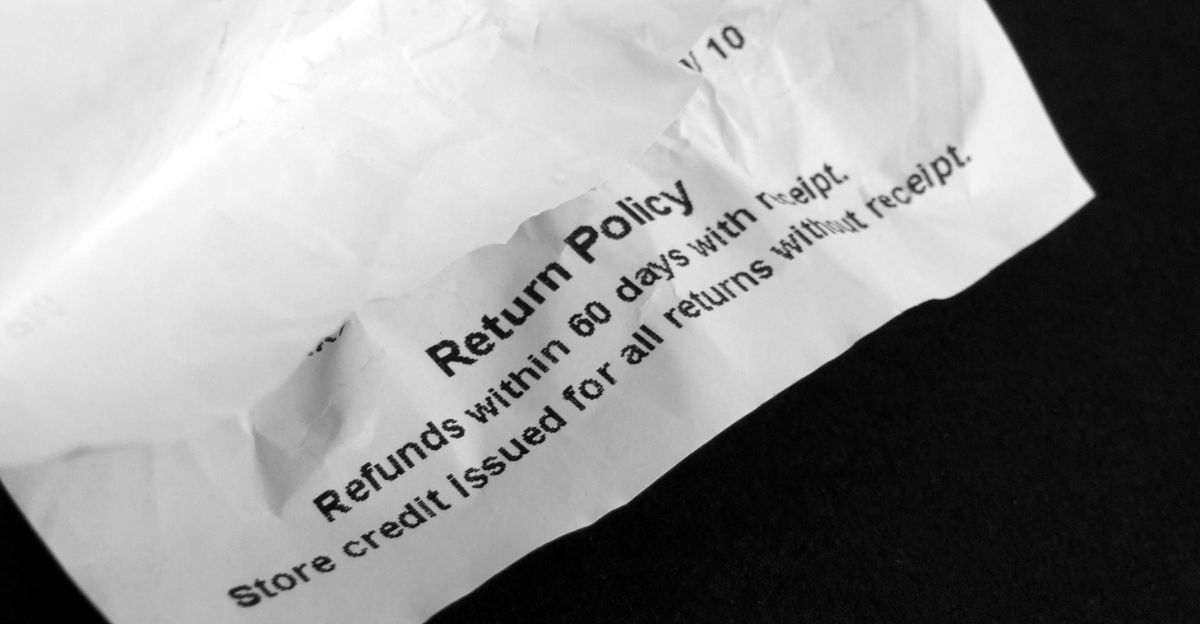
When well-known stores like Joann and JCPenney plan to close their shops, consumers expect a bargain like no other. But behind the frenzy is a shadow economy of cons preying on this desperation. Surprisingly, scam artists use these situations to steal money and gather personal information, often via elaborate fake websites and social media accounts.
The emotional hook of “everything must go” sales blinds most to red flags, making these scams too successful. It is worth knowing these tricks to avoid losing money and keep your identity and financial health safe. Let’s dissect nine prospering scams during liquidation sales and how to outsmart them.
1. Mimicking Joann and JCPenney Sites

The most prevalent is scammers creating phony sites mimicking Joann and JCPenney’s real online sites. Despite the public alert by Joann that online sales are closed in liquidation, scammers establish sites almost identical to the original ones with deep discounts to attract consumers.
These sites carry URLs similar to the original but are established for credit card number theft or to send counterfeit or no products at all. Better Business Bureau is tracking over 200 complaints of fake Joann websites alone, which shows the magnitude of this threat. Always verify URLs and check stores yourself when official web sales shut down.
2. Social Media Impersonation and Emotional Manipulation

Spammers exploit social media by creating copycat profiles that pose as family-owned businesses that shut down after decades. The profiles post sentimental tales and AI-constructed photos to build trustworthiness, and impulse purchases ensue.
Such tactics use customers’ goodwill and fear of loss in liquidation sales. Scammers used the same tactic to trick customers in a fake jewelry store scam during the holiday season. The emotional manipulation through professionally produced content makes these scams devious and difficult to detect.
3. Improbable Discounts as an Emotional Trap

70-90% discounts with the assurance of huge discounts are a common lure in such scams, aimed at luring buyers into making impulse buys. Though there are discounts during liquidation sales, too-good-to-be-true prices usually are.
These exaggerated deals allow scammers to create a sense of urgency and get people to suspend rational thought. Scammers play on cognitive biases like scarcity and loss aversion to lure shoppers and get them to ignore warning signs. One must know these bargain prices as a warning indicator that helps protect consumers from being duped by these schemes.
4. Payment Methods That Undermine Consumer Protection

Scammers always ask for payment methods that offer little to no recourse, such as wire transfers, gift cards, or cryptocurrencies. These methods are irreversible and more anonymous than credit cards, and if you lose them, the money is gone.
Genuine stores typically offer a few secure payment options and clear refund policies. When you see a closing sale requiring an unusual payment method, it likely signals fraud. To protect themselves, consumers should use safe, traceable payment options.
5. Return Policies and Customer Support Not Clearly Defined

Scam signatures are either unclear or absent, and the return and refund policies are often not specified or vague. Real companies will have clear terms and typically have customer support. Scams will have fake good reviews but no support service concerning problems.
With no accountability when victims lose money or receive fakes, victims have no recourse. Investigating return policies and customer support for responsiveness before purchasing can help avoid these situations.
6. Email Phishing and Wire Transfer Scams in Store Closing Situations

Other than direct sales frauds, criminals target customers through phishing emails purporting to be store owners or liquidation agents. The emails can request money or personal information in the guise of effecting transactions or taking advantage of special offers.
Similar to mortgage closing scams through spoofing wiring instructions, these approaches aim to make payments to fake accounts. The need for care with email communication applies as such scams become prevalent in store closing transactions.
7. Application of Bankruptcy News in Enriching Scams

The Joann and JCPenney public filings provide rich ground for scammers. They use legitimate news as cover, staging “clearance” or “going out of business” sales that are not real but appear to be.
Fact and fiction become more challenging to identify as consumers believe and accept what is real. Historical tendencies have shown that massive bankruptcies will trigger cascades of related scams, and thus, enhanced alertness and verification at those times are necessary.
8 Counterfeit Gift Cards and Voucher Scams

Amid the chaos of Joann and JCPenney going-out-of-business sales, counterfeit gift cards and vouchers have grown as a silent con. Thieves resell pilfered or counterfeit gift cards on third-party sites or social media storefronts with guarantees of increased value or special perks.
Victims remain unaware of the swindle until checkout, when cards are declined, often after money has already been expended or transferred. Gift card scams increased 25% in Federal Trade Commission complaints during big retail liquidation sales in the past years, the Federal Trade Commission reports.
The scam is an abuse of convenience-seeking and budget-conscious shoppers, so beware—always purchase gift cards in approved locations and review the balance first.
9. Ways Consumers Can Beat Scams During Liquidation Sales

Consumers must be proactive to avoid becoming victims of scammers, so stay safe! It is always best to shop in person and confirm that website URLs are correct when shopping at your favorite online stores, especially during sales.
If anything sounds too good to be true, it likely is. It’s also best practice to buy goods using safe payment options, such as a credit card. Find out about the merchant’s return/refund policy before you buy!
Finally, People should report any questionable activity to legitimate organizations like the Better Business Bureau (BBB). If you carefully keep all these tips in mind and remain vigilant, you can protect yourself and outsmart a fraudster during store closures and any other time!
Discover more DIY hacks and style inspo- Follow us to keep the glow-up coming to your feed!

Love content like this? Tap Follow at the top of the page to stay in the loop with the latest beauty trends, DIY tips, and style inspo. Don’t forget to share your thoughts in the comments — we love hearing from you!